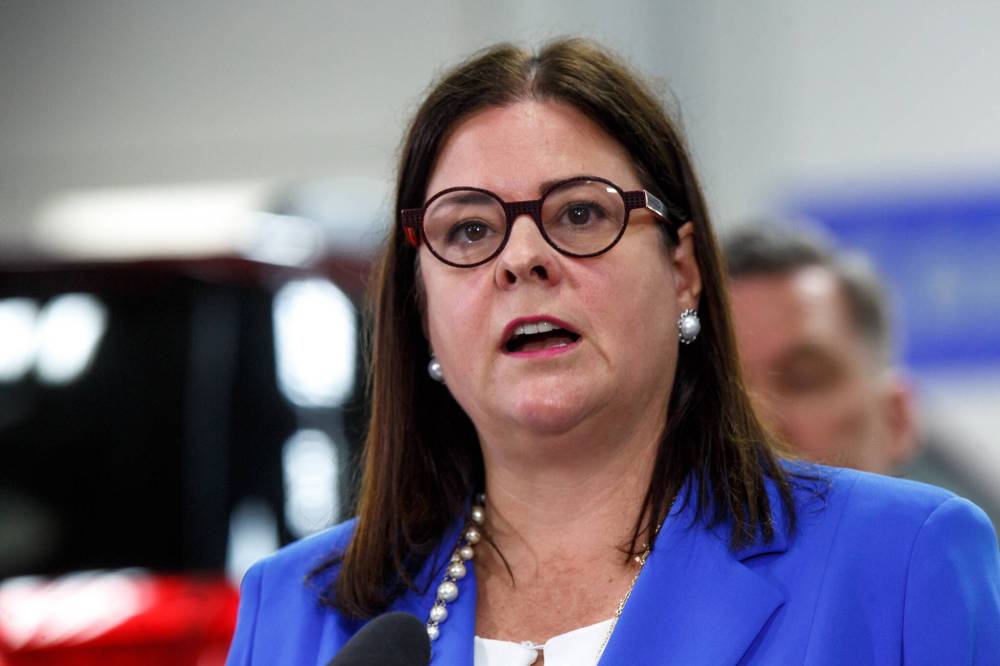Expect a reasonable approach to keep Manitoba’s minimum wage out of cellar
Read this article for free:
or
Already have an account? Log in here »
To continue reading, please subscribe:
Monthly Digital Subscription
$0 for the first 4 weeks*
- Enjoy unlimited reading on winnipegfreepress.com
- Read the E-Edition, our digital replica newspaper
- Access News Break, our award-winning app
- Play interactive puzzles
*No charge for 4 weeks then price increases to the regular rate of $19.00 plus GST every four weeks. Offer available to new and qualified returning subscribers only. Cancel any time.
Monthly Digital Subscription
$4.75/week*
- Enjoy unlimited reading on winnipegfreepress.com
- Read the E-Edition, our digital replica newspaper
- Access News Break, our award-winning app
- Play interactive puzzles
*Billed as $19 plus GST every four weeks. Cancel any time.
To continue reading, please subscribe:
Add Free Press access to your Brandon Sun subscription for only an additional
$1 for the first 4 weeks*
*Your next subscription payment will increase by $1.00 and you will be charged $16.99 plus GST for four weeks. After four weeks, your payment will increase to $23.99 plus GST every four weeks.
Read unlimited articles for free today:
or
Already have an account? Log in here »
Hey there, time traveller!
This article was published 31/05/2022 (1293 days ago), so information in it may no longer be current.
The devil will be in the details when it comes to how much the Stefanson government will increase the minimum wage in 2022 under proposed legislation that’s expected to become law this week.
My prediction: government will boost the base wage by at least $1.10 an hour this year.
As expected, the Stefanson government plans to alter its inflation-based formula for setting the minimum wage, which now stands at $11.95 an hour. Normally, the base wage is indexed to the previous year’s rate of inflation. That’s sound policy during normal times. However, with inflation growing at rates not seen in more than 30 years, an immediate adjustment is required to ensure minimum-wage earners don’t lose purchasing power.
Conservative governments in Saskatchewan, Ontario and New Brunswick have all announced significant increases to their base wages in 2022, putting pressure on the Stefanson government to follow suit. Failure to do so would see Manitoba’s minimum wage (previously scheduled to rise 40 cents an hour to $12.35 on Oct. 1) rank lowest in the country.
Conservative governments in Saskatchewan, Ontario and New Brunswick have all announced significant increases to their base wages in 2022, putting pressure on the Stefanson government to follow suit.
Under Bill 44, introduced Monday, cabinet will have the ability to increase the minimum wage beyond the previous year’s inflation rate, if Manitoba’s consumer price index rises five per cent or more in the first quarter of the year. The wage increase must take effect between Oct. 1 and Dec. 31, with at least 30 days notice. The bill will be fast-tracked this week and is expected to pass Wednesday before the legislative assembly rises for the summer. Cabinet could then announce an increase by Sept. 1, for an implementation date of Oct.1.
The average rate of inflation in Manitoba for the first three months of 2022 was 6.2 per cent, so the legal criteria has been met to boost the wage beyond last year’s Consumer Price Index. The only thing left to decide is how high it should go.
The Stefanson government is expected to consult with business and organized labour on the changes, both of which will, as usual, give cabinet conflicting advice. Unions want government to immediately boost the minimum wage to $16 an hour, a level they call a “living wage.” That would help union negotiators secure higher wages for their members during collective bargaining (although they would never admit that publicly). Business groups, meanwhile, want the opposite: to keep their members’ labour costs as low as possible (they wouldn’t admit that, either). The province will likely find a middle ground.

That’s not all they will consider, though. Part of the reason the government is fiddling with the minimum-wage formula is because Manitoba was poised to have the lowest base wage in the country this year. The Tories don’t want to go through all this trouble and still bring up the rear. New Brunswick has already increased its base wage by $1 this year and is planning a second hike Oct. 1, bringing its minimum pay to $13.75. Saskatchewan is going to $13 on Oct. 1. All other provinces are above $13 (B.C. and Ontario are at, or above, $15). Some have plans to go further over the next two years.
That means Manitoba would have to boost the minimum wage to at least $13.05 by Oct. 1 to stay ahead of Saskatchewan. It could go higher, perhaps to $13.25 (an 11 per cent increase and well above inflation).
If Manitoba’s inflation rate finishes the year at about seven per cent, a $13.25 minimum wage would rise to $14.20 on Oct. 1, 2023, under the province’s inflation-adjusted formula. That may not be enough to avoid a last-place finish by then, depending on what Saskatchewan and New Brunswick do over the next year. However, if inflation remains at or above five per cent this time next year, government could make another one-time adjustment in 2023.
If Manitoba’s inflation rate finishes the year at about seven per cent, a $13.25 minimum wage would rise to $14.20 on Oct. 1, 2023, under the province’s inflation-adjusted formula.
Either way, the goal will be to stay out of the basement, not have one of the highest minimum wages in the country, which Manitoba rarely, if ever, does. Manitoba’s cost of living is lower than most provinces; it’s not likely going to have one of the highest minimum wages in Canada.
A minimum wage of $13.25 by Oct. 1 and $14.20 a year later seems like a reasonable compromise. Neither business nor organized labour would be particularly satisfied, which means government would be on the right track. It’s likely where the Stefanson government will land on this.
tom.brodbeck@freepress.mb.ca


Tom has been covering Manitoba politics since the early 1990s and joined the Winnipeg Free Press news team in 2019.
Our newsroom depends on a growing audience of readers to power our journalism. If you are not a paid reader, please consider becoming a subscriber.
Our newsroom depends on its audience of readers to power our journalism. Thank you for your support.
History
Updated on Tuesday, May 31, 2022 9:03 PM CDT: Removes duplication.








